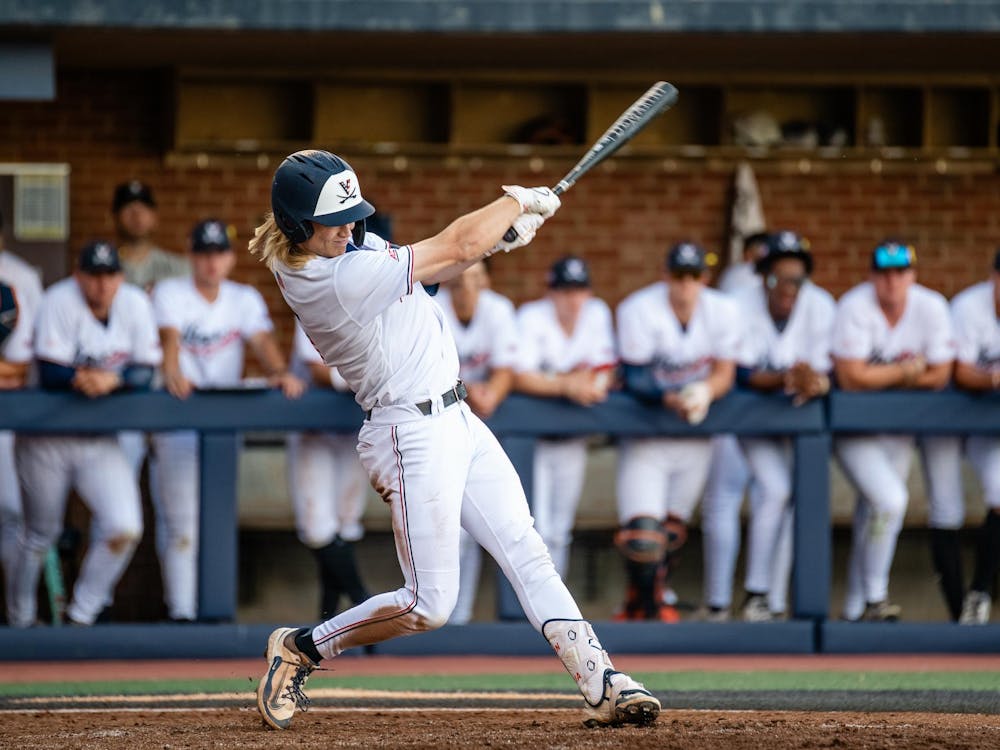Following what appears to be a recent trend, the 2000 ACC men's soccer tournament is too close to call.
"I could put my vote in for any of the teams who get into the semifinals to win it," North Carolina coach Elmar Bolowich said. "Everybody has a shot."
Last year, all but two tournament games were decided by one goal. Two games went into overtime, including the thrilling triple-overtime final, where Duke, the top seed, outlasted Virginia, the seventh and final seed, 2-1. But this season, at least based on regular season results, the tournament could be even closer.
No. 2 North Carolina, No. 9 Virginia and No. 6 Duke all finished the season tied for first place in the ACC with identical 5-1 conference records. Because the Cavs defeated the Tar Heels 3-1 Sept. 24 but lost to the Blue Devils 3-2 Oct. 21, while North Carolina beat Duke 4-2 Oct. 1, the conference had to rely on goal differentials, the second tie breaker, to determine the top three seeds.
The Tar Heels (17-2, 5-1 ACC) obtained the top seed by leading the league with a +14 goal differential. The Cavaliers (13-4, 5-1) edged out the Blue Devils (13-4, 5-1) for the second seed with a +11 goal differential compared to Duke's +10.
North Carolina receives a bye in the first round, which begins Thursday in Winston-Salem, N.C. This gives the team a distinct advantage over its second-round opponent, who likely will suffer from fatigue after a hotly-contested first-round game. It bodes very well for the Tar Heels' championship hopes as well, since the winner of the ACC tournament for the past two years has had a first-round bye.
"The team that doesn't have to play [in the first round] has a definite advantage, which is why I have to say that UNC is the favorite," said Duke coach John Rennie, whose team begins play Thursday at 5:30 p.m. against sixth-seeded Maryland (10-8, 1-5). "Last year we were the fortunate one to not have to play the first day, and we won the tournament."
Parity is a tradition in ACC men's soccer, which is why every team in the conference has won the championship at least once. But only the Cavaliers, who have won seven, have held the trophy over their heads more than once. In fact, Virginia dominated ACC play from 1991 to 1995, winning five ACC championships in that span. If the Cavs (13-4-1, 5-1) can down seventh-seeded N.C. State (3-11, 0-6) in their 3 p.m. game Thursday, they will be one step closer to beginning a new streak.
Duke, on the other hand, which won its first championship last season in Spry Stadium in Winston-Salem, wants to be the first team besides Virginia to make it two in a row. With such an even field, however, the Blue Devils will have a hard time.
Virginia, Duke and North Carolina "all have different parts of their game that are better than others," Maryland coach Sasho Cirovski said. "There are no dominant teams like in the Virginia years."
Fourth-seed Clemson (13-3-1, 3-3), ranked fifth in the nation, has the talent to pounce on the championship should the Cavs, Tar Heels or Blue Devils falter. Although the Tigers finished 3-3 in ACC play, they were missing key players to injury in their losses to Virginia and Duke. A healthy Clemson team promises to challenge for the title and is excited to begin play against host team and fifth-seed Wake Forest on Thursday at 8 p.m.
"We always seem to play well there," Clemson coach Trevor Adair said.
Although they have home-field advantage for the entire tournament, Wake Forest does not have history on its side. No host team has ever won the ACC Championship, with the 1996 Virginia squad as the only host team to even reach the finals.
"I wish I could say that [playing at home] would be a tremendous support, but the tournament has never been won by the home team," Deacon coach Jay Vidovich said. "We're just hoping to survive Thursday."
In an extremely tight race to the final, all seven teams in the ACC probably share Vidovich's sentiments.






